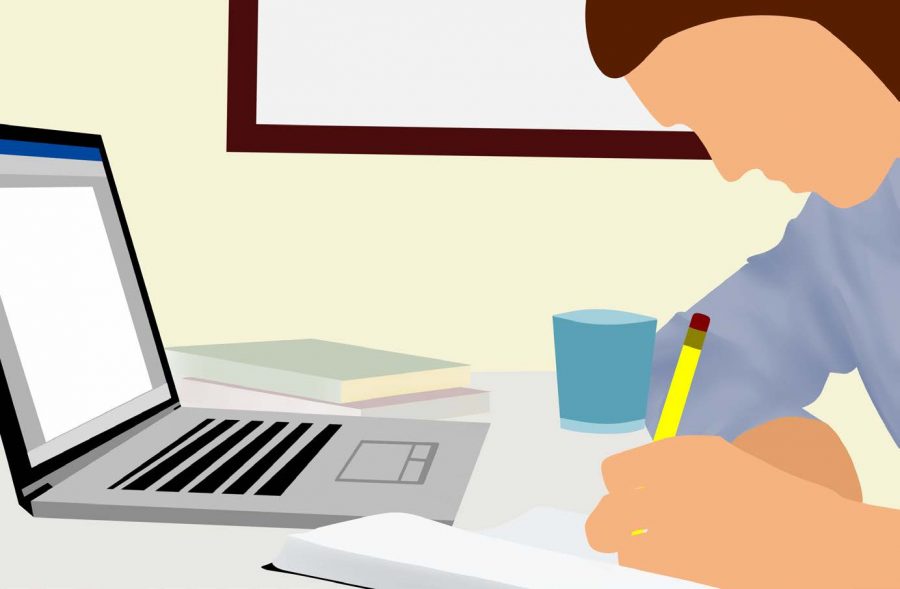Professors elaborate on what is behind their choices on spring course modalities
February 16, 2021
Deciding the modality of classes held spring quarter has been put into the hands of the professors teaching them. When considering how a class will be held, safety and the benefits of learning in person become deciding factors.
“You want to minimize risk, but you also want to think about how you can give the best educational experience to the students,” Matt Altman, a professor of philosophy and religious studies said.
The past several quarters have tested CWU’s ability to work in a number of different modalities and spring will be similar in presentation. In-person classes in spring quarter will still have restrictions that make learning in a shared space safer.
“We’re making it as safe as it can possibly be with social distancing and masking and regular testing,” Altman said. “By March I’m hoping that a decent number of vaccinations have been distributed in Kittitas County.”
Classes currently held in-person have taken place in large enough classrooms to follow distancing guidelines, and students have done a good job following them according to Altman.
“What I’m discovering is some students like the online, it’s sort of the convenience of it, but other students have said that they’re sort of hungry for that personal interaction, and philosophy in particular is suited to that sort of thing,” Altman said.
Hybrid classes allow for a reduced number of in-person meetings. Zoom or other online formats, like pre-recorded lectures, are held in place of some class days. Kathryn Stahl, an adjunct lecturer in the theatre arts department, plans to teach her spring classes in a hybrid format.
“Anything that I can either split the class in half and have approximately six to ten people in the room at a time I like to be able to do in a hybrid situation,” Stahl said.
The hybrid format gives students the ability to work with others face to face. Working with others in-person will prepare theatre students for what they will experience in their future workplaces, according to Stahl.
“The important thing to remember as we get to the place where vaccines are happening and we open up again is that we can come back to this modality,” Stahl said. “Hopefully with less of a fear for our health and wellness and find really great ways to incorporate it.”
Altman said a complex equation involving the best modality for learning and the best precautions for safety must be made, and for his philosophy in particular a large enough benefit can be found in face-to-face meetings.
Prior to COVID-19 and the move to online Altman said he, along with other educators, were told lectures should not be the focus of the classroom and more discussion and group work should be focused on.
“In person it was always a lot easier for me to get students engaged,” Altman said. “You can see what they’re getting and what they’re not getting.”
Other professions have had to rethink the way they operate in the last year, an idea reflected in the way students are learning.
“It’s forced us to really think about how we reach customers and how we build new products that reach those customers in a way that is taking care of what local people need,” Chair of the Management Marketing HR Entrepreneurship Department Bill Provaznik said.
Provaznik said one of his classes has live tournaments that require students with different roles to work together on projects and design the best product with the materials presented. Provaznik has been looking for ways to run the tournaments digitally.
“When we moved online it was a panic, because we never thought we could move this online. We had been asked to do it for probably four or five years,” Provaznik said.
Brandy Wiegers, a mathematics professor and director of the office of undergraduate research, will hold hybrid classes as well. The classes will be held over Zoom and reserve computer labs on campus for students that need access.
“Primarily it was talking with my students,” Wiegers said. “A lot of my students were not able to afford to come back to campus.”
In future years, on snow days or other events that would make it difficult to get to class, Wiegers said virtual class may make it safer for those that would have to drive.
Charles Li, a professor of English, is still debating what modality will work best for next quarter but leans toward real-time online.
“I’ve worked here for about twenty-five years and I have an attachment to every building,” Li said.
Interaction with students remains a big part of teaching, however, some professors say that interaction has become more difficult to gauge.
“I miss being able to read the room, and people have every right to turn their cameras off 100%, but it’s so much harder to teach to the void than it is to teach to a human,” Stahl said.



